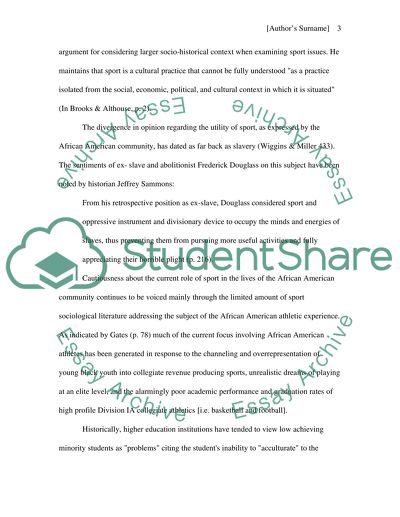Cite this document
(“African americans in sports Research Paper Example | Topics and Well Written Essays - 2750 words”, n.d.)
Retrieved from https://studentshare.org/family-consumer-science/1422358-african-americans-in-sports
Retrieved from https://studentshare.org/family-consumer-science/1422358-african-americans-in-sports
(African Americans in Sports Research Paper Example | Topics and Well Written Essays - 2750 Words)
https://studentshare.org/family-consumer-science/1422358-african-americans-in-sports.
https://studentshare.org/family-consumer-science/1422358-african-americans-in-sports.
“African Americans in Sports Research Paper Example | Topics and Well Written Essays - 2750 Words”, n.d. https://studentshare.org/family-consumer-science/1422358-african-americans-in-sports.


